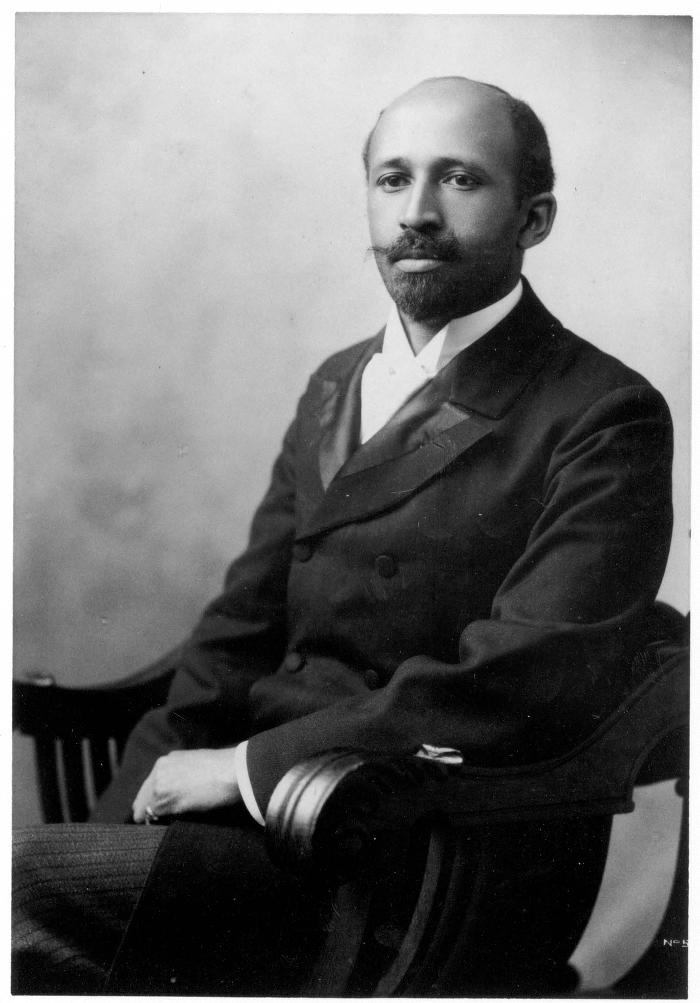




Advanced Search
| Online Collection |
|
||||||||||||||
|
William Edward Burghardt Du Bois was born in Great Barrington, Massachusetts, in 1868. His mother was a domestic worker, and his father a barber and laborer who soon abandoned them. His family had long been residents of New England, and had been slaves only before the Revolution. He received a free public education in the local school and was encouraged to go on to college. In 1885 he entered Fisk University in Tennessee, one of the new southern Afro-American colleges, and in 1888 transferred to Harvard as a junior. He received a B.A. in 1890, an M.A. in 1891, and a Ph.D. in 1895. His dissertation, "The Suppression of the African Slave Trade to the United States..." was the first systematic study of American slavery. When it was published in 1895 it was the first of the "Harvard Historical Studies" series. Du Bois taught languages and history but his study of African American life led to a career in sociology; among his contributions was his "Souls of Black Folk" (1898), about Philadelphia African Americans, and the historical biography "John Brown" (1909). He was a charter member of the NAACP (1910), where he edited its magazine, "Crisis". For the rest of his life he worked with that organization and with others, fighting racial oppression and for equal rights and economic equality both in America and abroad. Cold War persecution led him to leave the U.S. for Africa in 1961. He spent his last years in Ghana, where he died in August, 1963.
|
Portrait of W. E. B. Du Bois
|
| |
Home | Online Collection | Things
To Do | Turns
Exhibit | Classroom | Chronologies | My
Collection
About This Site | Site Index | Site Search | Feedback


